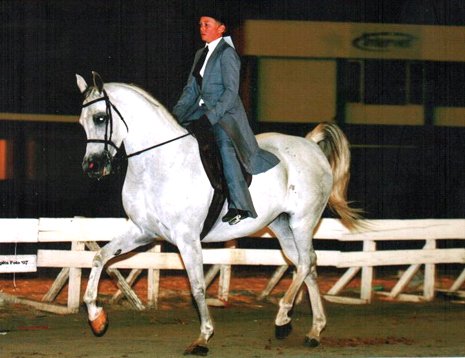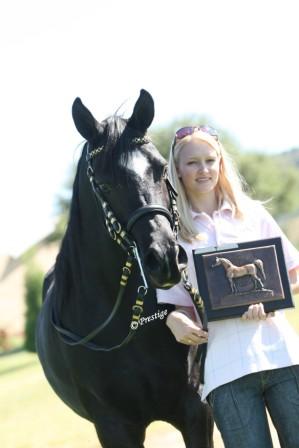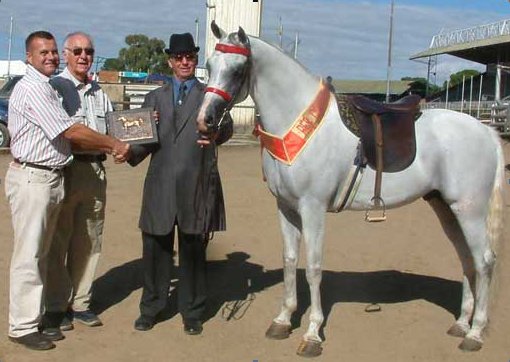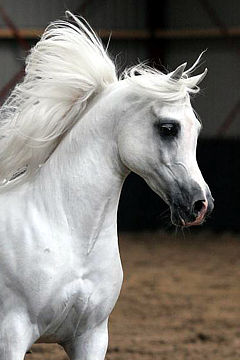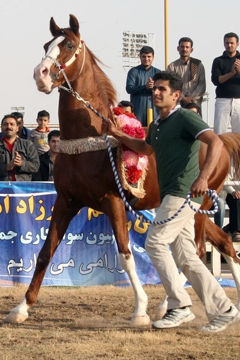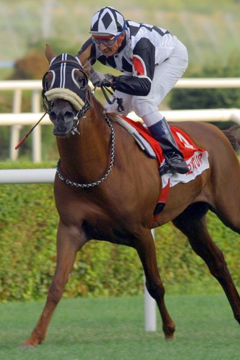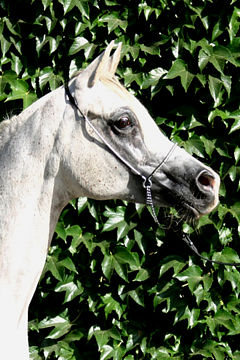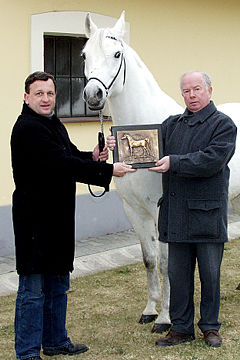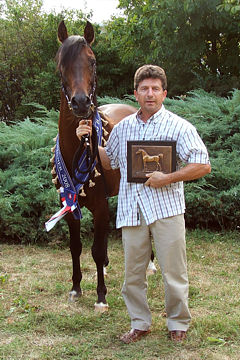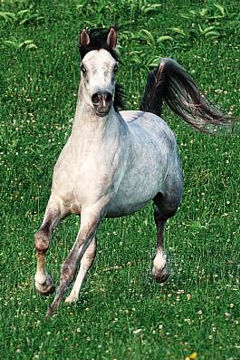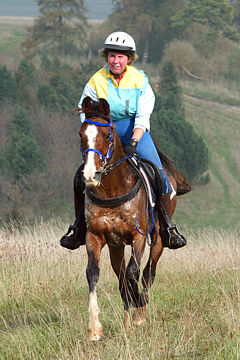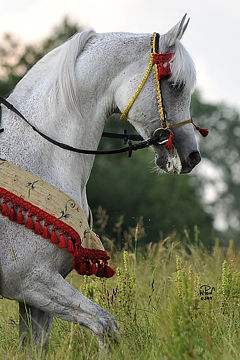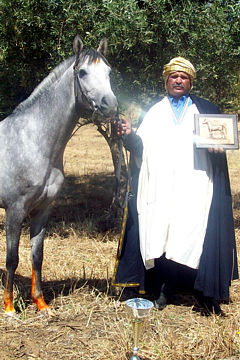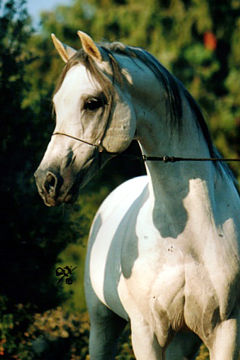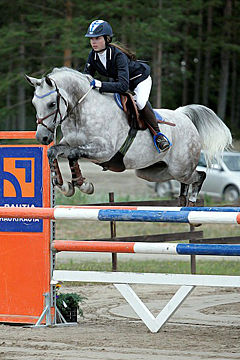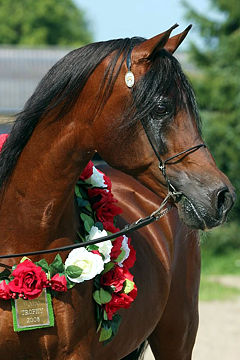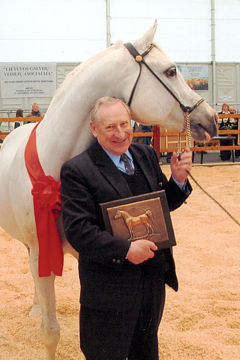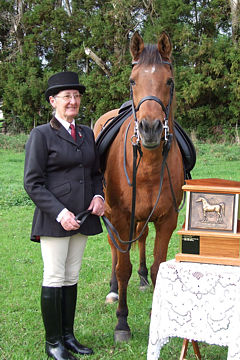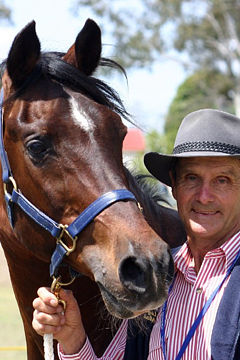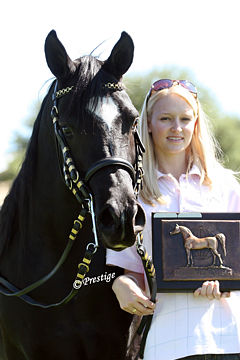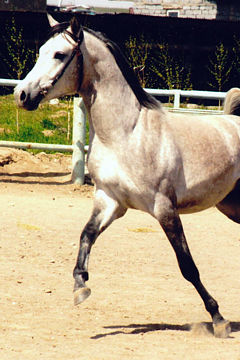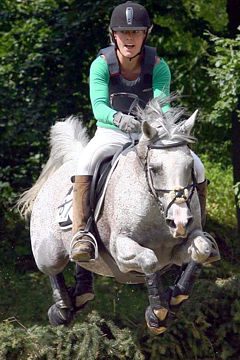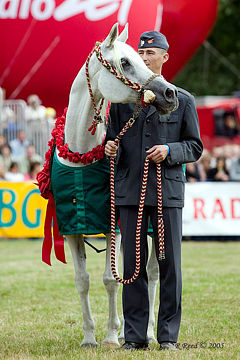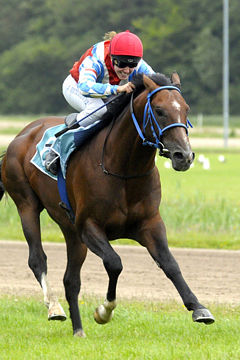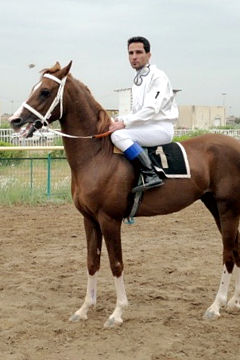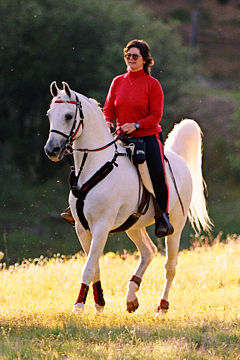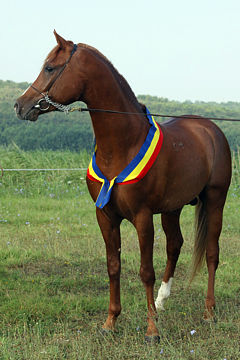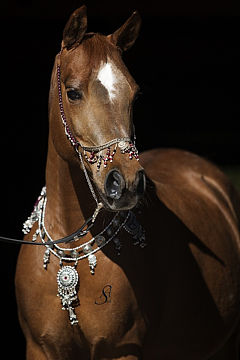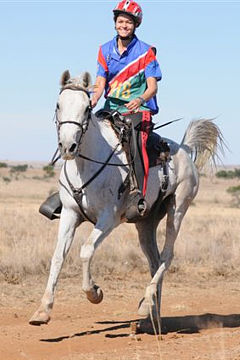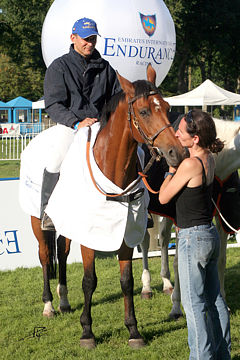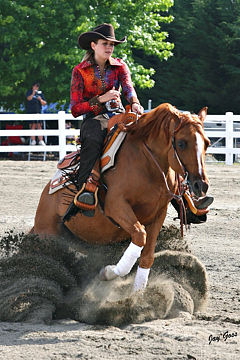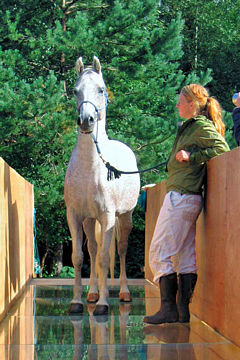![]()
Member Report from South Africa
2019 REPORT:
The Arab Horse Society of South Africa has provided the following information. In 2017, 564 foals were registered. 27 horses were exported. There were 8 shows and approximately 100 endurance competitions. In 2018, 448 foals were registered. 3 horses were exported and 3 horses were imported. The number of competitions remained the same.
REPORT MADE AT 2014 WAHO CONFERENCE:
Marie-Louise Van Wyk, South Africa: Mr President, distinguished delegates, ladies and gentlemen, greetings from the President and Council of the Arab Horse Society of South Africa. I am MarieLouise van Wyk, National Council Member of the Arab Horse Society of South Africa, where my portfolio is Studbook and WAHO affairs. Our sincere gratitude is extended to our celebrated and legendary outgoing President, Dr. Hans Nagel, we wish him a well earned retirement. At the same time we welcome our new President, Mr. Peter Pond from Australia. South Africa looks forward to this new era and wishes him all the best for a prosperous and fruitful term of office.
At the present time, we have 774 members of the Arab Horse Society. Since the first volume of our Stud Book was published in 1961, we have registered in the region of 15,000 foals. The number of living purebred Arabian horses at present is 7,807, with 475 mares entered for breeding and 242 stallions. Stallions do not have to be licensed but must be tested for SCID and CA. Approximately 1,000 Partbreds and Anglo-Arabs are also registered. Only 73 foals were registered so far this year. This is a dramatic decline from 563 in 2011, 709 in 2012 and 457 in 2013. This situation has arisen due to three years of severe drought in some areas and the appalling economic state of affairs in our country. 36 horses were imported and 64 horses were exported. Artificial Insemination is accepted and stallions have to be registered as semen donors. There are approximately 30 stallions registered as semen donors. Embryo transfers have only been accepted since July 2008.
Six Regional Shows are held each year with an entry of approximately 150 horses, and a National Championship Show is also held each year and here the entries top 350. Besides the Halter Classes, Riding, Dressage and Performance Classes are an integral part of our shows.
Endurance Riding is extremely popular in South Africa with between 96 and 100 Rides taking place each year. On some weekends, three to four rides are held over one weekend at various venues across the country, the most challenging and arduous being the 210 km Fauresmith Ride. Eleven FEI events were held during the last year. The Endurance Ride Association of South Africa (ERASA) is an independent body governing all Endurance Rides in South Africa. These rides are open to all breeds, but I am happy to report that Arabian horses and their derivatives feature strongly at the finish line.
We are grateful to report that an excellent and friendly rapport exists between the WAHO office and our office in Bloemfontein. Nothing seems to be too much trouble for your amazing Executive Secretary, Katrina Murray. In conclusion I thank you for this amazing experience, to visit this beautiful country and to attend this well organized illustrious Conference in Qatar. I sincerely wish all delegates an interesting and productive Conference. Thank you.
REPORT MADE AT 2009 WAHO CONFERENCE:
I am Marie Louise Van Wyk, Council Member of the Arab Horse Society of South Africa, where my portfolio is Stud Book and World Affairs.
At the present time, we have 720 Society members. Since the first volume of our stud book was published in 1961, we have registered in the region of 15,000 foals. The number of living purebred Arabian horses is 5,982, with 3,850 mares entered for breeding and 1,633 stallions. Stallions do not have to be licenced but must be tested for SCID. 1,084 Partbreds and Anglo-Arabs are also registered. 2,176 foals were registered since our last WAHO meeting. 90 horses were imported in that time and approximately 150 horses were exported. Artificial Insemination is accepted and stallions have to be registered as semen donors. There are approximately 30 stallions registered as semen donors in South Africa. Embryo Transfers have only been accepted since July 2008 and since that time 90 applications for registration of Embryo Transfer foals have been received.
I am very proud to report that I bring to this Conference Volumes 16 – 32 of our stud book. This brings the South African stud books up to date until 2007. A CD of our stud books is available.
5 Regional Shows are held each year with an entry of approximately 150 horses, and a National Championship Show is also held each year and here the entries top 350. Besides the Halter classes, Riding, Dressage and Performance classes are an integral part of all our shows.
Endurance riding is extremely popular in South Africa with 67 rides taking place each year, on some weekends three to four rides are held over one weekend at various venues across the country, the most challenging and arduous being the 210Km Fauresmith Ride. The Endurance Ride Association of SA (ERASA) is an independent body governing all Endurance Rides. These rides are open to all breeds, but I am happy to report that Arabian horses and their derivatives feature strongly at the finish line.
I must not fail to mention the excellent rapport which exists between the WAHO office and our office in Bloemfontein. Nothing seems to be too much trouble for your Executive Secretary, Katrina Murray, for which we say thank you. In conclusion I thank you for this amazing experience to visit the beautiful country of Oman, and to attend to attend this well-organized, illustrious Conference and I sincerely wish all delegates an interesting and productive Conference. I would like to thank His Majesty Sultan Qaboos Bin Said, The Royal Court Affairs, and the Organizing Committee for hosting this Conference. Thank you.
REPORT MADE AT 2007 WAHO CONFERENCE:
South Africa is one of seven founder member countries of WAHO. The Arab Horse Society of South Africa was founded in 1960 by the late Charmaine Grobelaar and Jani Grobelaar. A book on the history of the Arabian in South Africa is currently in print which will give the history of the Arabian in our country going back to 1652.
The Society has currently 597 paid up members who own 4,912 horses of which 3,184 are mares, 1,450 stallions and 278 geldings. 750 purebred foals were registered in 2005. Anglo-Arabs and Partbred Arabs are also recorded by Society and numbered 202 foals born for the current year. In 2006 no horses were exported, while 10 were imported. DNA testing is done routinely and is mandatory. Mechanisms and knowledge exist to utilize Artificial Insemination and Embryo transfer which are both allowed. The management of the Society is handled by council and a series of sub-committees under the headings of actions, showing, sponsorship, finance, studbook, promotion and drug testing. This is all under the chairmanship of the current President, Mr. Johan Du Plessis.
Over the years the primary activity was showing classes, with one annual National Championship. This is continuing but with an extension into endurance riding which is the latest and fastest growing equestrian sport in South Africa. There are multiple 80km competitions through which one qualifies for the ultimate 201km Fouresmith competition, which this year saw 348 competitors. Endurance riding is subdivided into senior and junior riders, with qualification for national and provincial levels. Single competitors compete in categories for children (10-13 years), juniors (14-17 years) and seniors (over 18 years). This latter group is sub-divided again according to weight carrying, i.e. lightweight (below 73 kg), standard (73-94 kg) and heavyweight (95 kg and over). Endurance riding is not the sole domain of Arabians, yet in open company they often dominate. Veterinarians check all horses every 25 kilometres and the Fouresmith ride is completed over 3 days. A more strenuous ride over 100 miles is done once a year by competitors over 24 hours, starting at midnight.
Visiting judges from overseas are at times invited to give seminars after judging. Our stud books are up-to-date.
In 2007, South Africa registered 1,042 foals, an encouraging increase on previous years. 12 horses were exported and 59 were imported.

